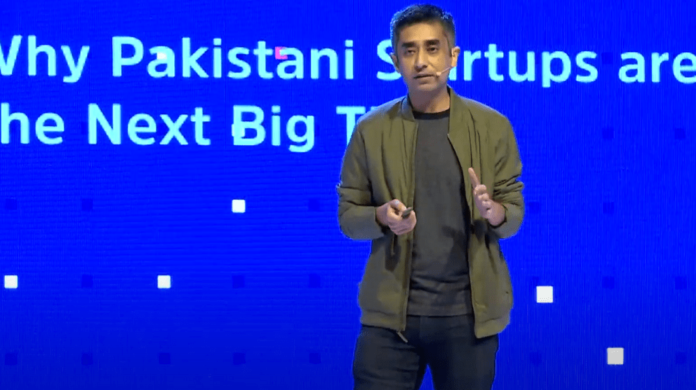LAHORE: Indus Valley Capital, a San Francisco based, Pakistan-focused venture capital founded and led by former LinkedIn executive Aatif Awan, has raised $17.5 million for its maiden fund, which was oversubscribed with over 75 individual investors from around the world.
According to a press release, these investors include Reddit’s co-founder Alexis Ohanian, as well as founders, executives, and operators from leading technology companies including Facebook, Google, Stripe, Coinbase, Uber, Careem, InstaCart, LinkedIn, Reddit, Dropbox, Atlassian, WebFlow, Zillow and Oracle.
“Aatif and I were first introduced on the board of Atoms, an innovative shoe company I invested in, started by two incredible Pakastani founders Sidra Qasim and Waqas Ali,” said Alexis Ohanian. “Through our shared passion for the brand, I learned about Aatif’s love of Pakistan and his plans to establish a fund that would nurture the country’s burgeoning start-up ecosystem. Aatif is ahead of the curve and has positioned Indus Valley Capital at the forefront of what promises to be an exciting moment in the global investment landscape.”
The investors also include several unicorn founders and executives with experience at top tech companies in Silicon Valley and around the world, most of whom are investing in the fast-growing Pakistani startup ecosystem for the first time. The firm, however, has not disclosed their names.
Partners at two multi-billion dollar VC funds and early investors in Careem and Souq, two of the MENA region’s largest successful startup exits, are also among the limited partners.
Indus Valley Capital has previously announced leading investment rounds in Airlift, Bazaar and AimFit. The firm was started by Aatif Awan, former VP of Growth, International, and Data products at LinkedIn where he spent seven years helping the company grow to half a billion members. He also led the product integrations between LinkedIn and Microsoft after Microsoft’s $26 billion acquisition of LinkedIn in 2016.
“I had no plans of moving back to Pakistan or building a VC fund focused on Pakistan when I left LinkedIn in 2018. But after meeting some Pakistani founders, I realised that Pakistan was at the cusp of a once-in-a-lifetime transformation that other large economies were going through. I knew I had to play my part and the best way to do that was to enable founders to build transformational companies in Pakistan”.
To raise capital, the fund, instead of persuading family offices or development finance institutions to become an anchor limited partner, built a network of over 75 successful technology and finance professionals with an interest in investing in the Pakistani startup ecosystem.
The fund is sector-agnostic and has already made five investments in startups targeting a variety of industries, including transportation, grocery delivery, b2b retail, fitness, fintech and remote work. These investments include the first lead checks into Airlift, Bazaar and AimFit and two undisclosed startups. The median time from pitch deck to term sheet has been two weeks.
The firm also helps its portfolio companies with product strategy and growth, as well as raising follow-on capital. This is where the network of operators and investors IVC has built as its limited partner becomes really valuable.
Airlift, IVC’s first investment, raised a $12m series A round, the largest in the country, led by First Round Capital, a leading VC firm that was an early investor in Uber, Square, Roblox and Notion. This is particularly noteworthy as this was First Round’s only investment in Asia in a decade.
IVC’s second investment, Bazaar, raised a $6.5m seed round, one of the largest seed rounds in the region, co-led by Global Founders Capital, an investor in Facebook, Slack and DeliveryHero.
Both Airlift and Bazaar raised their follow-on rounds in just eight months of IVC’s initial investment. In aggregate, IVC-backed companies have raised more than $33m in capital already, more than a quarter of the total raised by early-stage Pakistani startups in the last two years.




